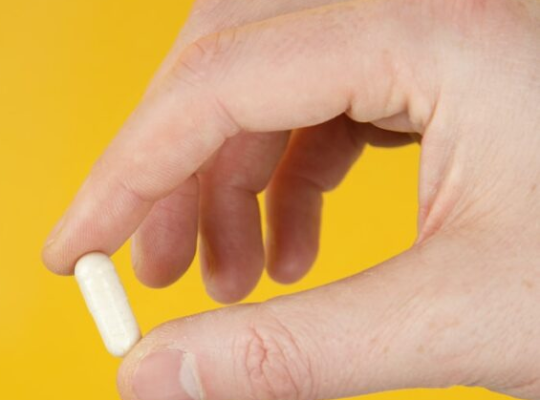
Everyone occasionally has aches and pains that need short-term relief to break the pain cycle. Often we turn to over-the-counter anti-inflammatory pain killers such as Ibuprofen (Advil) or Naproxen (Aleve). While these can provide quick relief, they are not without side effects. The prostaglandins that NSAIDs disrupt are also involved in providing protection in the stomach. Without this protective mucus layer, you increase the risk of an ulcer (hole) in the stomach. Thus long term use of these NSAIDs can cause an increased risk of stomach ulcers. The other issue with using these anti-inflammatories is they can contribute to some ‘wear and tear on the gut lining (‘Leaky Gut’). The topic of having a ‘leaky gut’ is too large to combine with this issue, but it is implicated in a number of downstream diagnoses including the many forms of auto-immune disease (Hashimoto’s thyroiditis, lupus, Crohn’s disease, Rheumatoid arthritis, etc). We will get into the topic at another newsletter–I Promise!
Back to the common anti-inflammatories, Are there any alternatives that provide the pain relief without these risks?
Here are a couple of options I have recommended to clients:
- Curcumin:
Curcumin is a polyphenol found in the turmeric root that gives turmeric its bright yellow color. It’s been shown to have anti-oxidant, antimicrobial properties and anti-inflammatory properties. It works via a similar pathway as the NSAIDs, but without the gut-wrecking aspects. Here’s the deal though, there is a HUGE variability in the absorption of curcumin extracts. If we wanted to use curcumin to help with a imbalance in our microbiome, we would not want it to be absorbed–it should work in the gut; however, if we are looking for a systemic effect for our arthritis, we want the curcumin absorbed. The type of curcumin I recommend is called Meriva Curcumin. The Meriva formulation is combined with a phospholipid that improves its absorption by not just a little, but by 29x in a human trial!! The supplement company, Thorne, came up with the Meriva phytosome, but sells it to other companies for use. A typical starting dose is 500mg twice a day for 5-7 days, then you can increase to 1000mg twice a day if needed. Use caution if you take warfarin to monitor your INR and adjust if needed or some chemotherapy agents may interact with it as well. Check with your doctor or pharmacist if you are taking these. You can find many reputable brands of Meriva Curcumin at my online dispensary with a discount for Hansen Healthletter recipients! Search the catalog for “Meriva” for a few different reputable options.
- A second alternative to consider is Boswellia.
Boswellia is a terpene and the main active component of Frankincense oil (the same stuff baby Jesus got 🙂 ). It has been studied in clinical trials for osteoarthritis, asthma, knee arthritis and Crohn’s disease. Most trials use 250-500mg 2-3 times per day.
- Fish Oil: We’ve covered this in the past, but using 1000mg of EPA/DHA (Read the back of the label) twice a day for it’s anti-inflammatory effects.
These alternatives can be valuable to use short term while you figure WHY your body is giving you the pain signal in the first place and reverse those disease dynamics. Work with me to get to the roots!
You can find these product at my online dispensary and receive 10% off your order! Active clients are eligible for 20% off! Add your contact info at the sign-in screen and you can explore the ENTIRE CATALOG of third party tested supplements!








